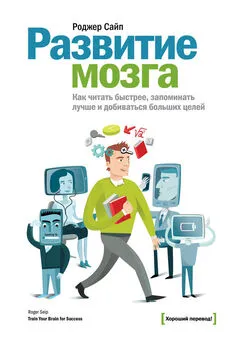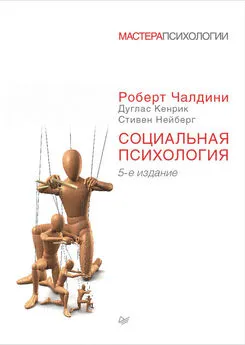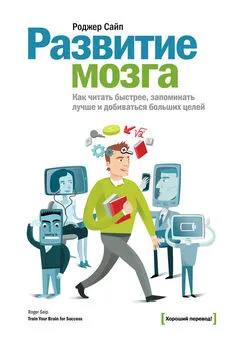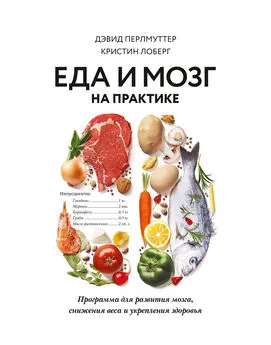Дуглас Кенрик - Рациональное животное. Как эволюция повлияла на развитие мозга
- Название:Рациональное животное. Как эволюция повлияла на развитие мозга
- Автор:
- Жанр:
- Издательство:Питер
- Год:2017
- Город:Санкт-Петербург
- ISBN:978-5-496-02982-7
- Рейтинг:
- Избранное:Добавить в избранное
-
Отзывы:
-
Ваша оценка:
Дуглас Кенрик - Рациональное животное. Как эволюция повлияла на развитие мозга краткое содержание
Почему миллиардеры столько работают, а потом бросают на ветер деньги, заработанные потом и кровью? Что общего между всеми нами и банкирами с Уолл-стрит, а также Элвисом Пресли и Стивом Джобсом?
В изящной и занимательной форме маэстро психологии Кенрик и Гришкевичус подвергают сомнению распространенные взгляды на процесс принятия решений и предлагают абсолютно новую альтернативу, основанную на эволюционной психологии. Устанавливая поразительную связь между поведением современного человека и его корнями, уходящими в прошлое, авторы показывают, что в основе «нелепых» поступков лежит чрезвычайно сложная система принятия решений.
Вкладывание денег, поиск работы, покупка машины, выбор спутника жизни — во всем этом за нашими решениями стоят скрытые эволюционные цели.
Эта замечательная книга полностью изменит ваше представление о процессе принятия решений.
Рациональное животное. Как эволюция повлияла на развитие мозга - читать онлайн бесплатно полную версию (весь текст целиком)
Интервал:
Закладка:
130. Kahneman, Daniel and Amos Tversky. 1979. “Prospect Theory: An Analysis of Decision Under Risk”. Econometrica. 47: 263–291.
131. Kanazawa, S. 2001. “De Gustibus Est Disputandum”. Social Forces . 79:1131–1163.
132. Kanfer, S. 1993. The last empire: De Beers, diamonds, and the world. New York: Harper Collins.
133. Kaplan, H. and S. Gangestad. 2005. “Life history theory and evolutionary psychology”. In The Handbook of Evolutionary Psychology. David M. Buss (Ed). John Wiley and Sons: 68–95.
134. Kenrick, D. T. 2011. Sex, murder, and the meaning of life: A psychologist investigates how evolution, cognition, and complexity are revolutionizing our view of human nature. New York: Basic Books. (Издание на русском языке: Кенрик Д. Секс, убийство и смысл жизни. — СПб.: Питер, 2012.)
135. Kenrick, D. T., C. Gabrielidis, R.C. Keefe, and J. Cornelius. 1996. ‘Adolescent’s age preferences for dating partners: Support for an evolutionary model of life- history strategies. Child Development. 67: 1499–1511.
136. Kenrick, D. T., and L. Gomez-Jacinto. 2013. “Economics, Sex, and the Emergence of Society: A dynamic life history model of cultural variation”. In M. Gelfand, C. Y. Chiu, and Y. Y. Hong (Eds.) Advances in Culture and Psychology, Vol. 3. New York: Oxford University Press.
137. Kenrick, D. T., V. Griskevicius, S. L. Neuberg, and M. Schaller. 2010. “Renovating the pyramid of needs: Contemporary extensions built upon ancient foundations”. Perspectives on Psychological Science. 5: 292–314.
138. Kenrick, D. T., V.Griskevicius, J. M. Sundie, N. H. Li, Y. J. Li, and S. L. Neu- berg. 2009. “Deep rationality: The evolutionary economics of decision- making”. Social Cognition. 27: 764–785.
139. Kenrick, D. T., G.R. Groth, M.R. Trost, and E.K. Sadalla. 1993. “Integrating evolutionary and social exchange perspectives on relationships: Effects of gender, self-appraisal, and involvement level on mate selection criteria”. Journal of Personality and Social Psychology . 64: 951–969.
140. Kenrick, D. T., and R. C. Keefe. 1992. “Age preferences in mates reflect sex differences in human reproductive strategies”. Behavioral & Brain Sciences. 15: 75–133.
141. Kenrick, D. T., R. C. Keefe, A. Bryan, A. Barr, and S. Brown. 1995. “Age preferences and mate choice among homosexuals and heterosexuals: A case for modular psychological mechanisms”. Journal of Personality and Social Psychology. 69: 1166–1172.
142. Kenrick, D. T., N. L. Li, and J. Butner. 2003. “Dynamical evolutionary psychology: Individual decision rules and emergent social norms”. Psychological Review. 110: 3–28.
143. Kenrick, D. T., Y. J. Li, A. E. White, and S.L. Neuberg. 2012. “Economic Subselves: Fundamental motives and Deep Rationality”. Pp. 23–43 in J. Forgas, K. Fiedler, & C. Sedikides (eds.). Social thinking and interpersonal behavior: The 14th Sydney Symposium of Social Psychology. — New York: Psychology Press.
144. Kenrick, D. T., and C. L. Luce. 2000. “An evolutionary life-history model of gender differences and similarities”. In T. Eckes & H. M. Trautner (Eds.). “The developmental social psychology of gender ”(pp. 35–63). Hillsdale, New York: Erlbaum.
145. Kenrick, D. T., S. L. Neuberg, V. Griskevicius, M. Schaller, and D.V. Becker. 2010. “Goal-driven cognition and functional behavior: The fundamental motives framework”. Current Directions in Psychological Science. 19:63–67.
146. Kenrick, D. T., E. K. Sadalla, G. Groth, and M.R. Trost. 1990. “Evolution, traits, and the stages of human courtship: Qualifying the parental investment model”. Journal of Personality. 53: 97–116.
147. Kenrick, D. T., F. Sanabria, J.M. Sundie, and P.R. Killeen. 2006. “When dilemmas disappear: How fitness interdependencies transform strategic games”. Unpublished manuscript.
148. Kenrick, D. T., J. M. Sundie, and R. Kurzban. 2008. “Cooperation and conflict between kith, kin,and strangers: Game theory by domains”. In C. Crawford & D. Krebs (Eds.), Foundations of Evolutionary Psychology: Ideas, Issues and Applications (pp. 371–382). Mahwah, New York: Erlbaum.
149. Kidd, C., H. Palmen, and R. N. Aslin. 2013. “Rational snacking: Young children’s decision-making on the marshmallow task is moderated by beliefs about environmental reliability”. Cognition: 126: 109–114.
150. Kirtzman, A. 2009. Betrayal: The life and lies of Bernie Madoff . New York: Harper Collins.
151. Klein, E. 2003. The Kennedy Curse . New York: St. Martin’s Press.
152. Klein, Jonathan. 2007. “Why do people really buy hybrids. The Topline Strategy Group”. http://www.cleanenergycouncil.org/files/Topline_Strategy_Report_Why_People_Really_Buy_Hybrids.pdf
153. Knaup, A. 2005. “Survival and longevity in the Business Employment Dynamics data”. Monthly Labor Review, May, 2005, 50–56.
154. Kurzban, Robert. 2010. Why Everyone (Else) is a Hypocrite: Evolution and the Modular Mind . Princeton University Press.
155. Lakshminarayanan, V., M. K. Chen, and L.R. Santos. 2011. “The evolution of decision-making under risk: Framing effects in monkey risk preferences”. Journal of Experimental Social Psychology. 47 (3): 689-693
156. Lakshminaryanan, V., M. K. Chen, and L.R. Santos. 2008. “Endowment effect in capuchin monkeys (Cebus apella)”. Philosophical Transactions of the Royal Society B: Biological Sciences, 363. 3837–3844.
157. Larrick, R. P., K. A. Burson, and J.B. Soll. 2007. “Social comparison and confidence: When thinking you’re better than average predicts overconfidence (and when it does not)”. Organizational Behavior & Human Decision Processes. 102 (1): 76–94.
158. Levi, Maurice, Kai Li, and Feng Zhang. 2010. “Deal or No Deal: Hormones and Completion of Mergers and Acquisitions”. Management Science. 56:1462–1483.
159. Levitt, S., and S.J. Dubner. 2005. Freakonomics: A rogue economist explores the hidden side of everything. New York: William Morrow. (Издание на русском языке: Левитт С., Дабнер С. Суперфрикономика. — М.: Манн, Иванов и Фербер, 2010.)
160. Lewin, Alexandra C. (2007). Case Study #4-4, Zambia and Genetically Modified Food Aid / Per Pinstrup-Andersen and Fuzhi Cheng (editors), Food Policy for Developing Countries: Case Studies , 12 pp.
161. N.P. Li, J.M. Bailey, D.T. Kenrick, and J.A.W.Linsenmeier. 2002. “The necessities and luxuries of mate preferences: Testing the tradeoffs”. Journal of Personality and Social Psychology . 82: 947–955.
162. N.P. Li, and D.T. Kenrick. 2006. “Sex similarities and differences in preferences for short-term mates: What, whether, and why”. Journal of Personality & Social Psychology . 90: 468–489.
163. Li, Y. J., D.T. Kenrick, V. Griskevicius, and S.L. Neuberg. 2012. “Economic decision biases and fundamental motivations: How mating and self-protection alter loss aversion”. Journal of Personality and Social Psycholog. 102:550–561.
164. Liberman, V., S.M. Samuels, L. Ross, L. 2004. “The name of the game: Predictive power of reputations versus situational labels in determining prisoner’s dilemma game moves”. Personality and Social Psychology Bulletin. 30: 1175–1185.
165. Lino, M. 2010. “Expenditures on children by families”. 2009. (Miscellaneous Publication № 1528–2009). Retrieved from http://www.cnpp usda.gov/ Publications/CRC/crc2009.pdf.
166. Low, B. S., A. Hazel, N. Parker, and K.B.Welch. 2008. “Influences on women’s reproductive lives: Unexpected ecological underpinnings”. Cross Cultural Research , 42, 201–219.
167. Maner, J. K., C. N. DeWall, R. F. Baumeister, and M. Schaller. 2007. “Does social exclusion motivate interpersonal reconnection? Resolving the “porcupine problem”. Journal of Personality and Social Psychology . 92:42–55.
168. Maner, J. K., M.T. Gailliot, D.A. Rouby, and S.L. Miller. 2007. “Can’t take my eyes off you: Attentional adhesion to mates and rivals “. Journal of Personality and Social Psychology. 93: 389–401.
169. Maner, J. K., D. T. Kenrick, and D. V. Becker, A. W. Delton, B. Hofer, C. J. Wilbur, and S. L. Neuberg. 2003. “Sexually selective cognition: Beauty captures the mind of the beholder”. Journal of Personality and Social Psychology. 85: 1107–1120.
170. Maner, J. K., D. T. Kenrick, S.L. Neuberg, D.V. Becker, T. Robertson, B. Hofer, A. Delton, J Butner, and M. Schaller. 2005. “Functional projection: How fundamental social motives can bias interpersonal perception”. Journal of Personality and Social Psychology . 88: 63–78.
171. Maner, J. K., S. L. Miller, D.A. Rouby, and M.T. Gailliot. 2009. “Intrasexual Vigilance: The Implicit Cognition of Romantic Rivalry”. Journal of Personality and Social Psychology. 97: 74–87.
172. Marmot, M. 2004. Status Syndrome: How Your Social Standing Directly Affects Your Health and Life Expectancy. Bloomsbury, London.
173. Martin, K. Annika. “Why McDonalds pulled Frankenfries from menu” / CNN.com April 28, 2000 // http://archives.cnn.com/2000/US/04/28/fries4_28.a.tm/index.html.
174. Mathews, T. J., B. E. Hamilton. (2009, August). “Delayed childbearing: More women are having their first child later in life”. NCHS Data Brief, 21. Retrieved from http://www.cdc.gov/nchs/data/databriefs/db21.pdf.
175. Mead, N. L., R. F. Baumeister, T. F. Stillman, C. D. Rawn, and K. D. Vohs. 2011. “Social exclusion causes people to spend and consume in the service of affiliation”. Journal of Consumer Research. 37: 902-919.
176. Mezrich, Ben. 2002. Bringing Down the House: The Inside Story of Six M.I.T. Students Who Took Vegas for Millions (New York: Free Press). Издание на русском языке: Мезрич Б. Удар по казино — М.: Вильямс, 2006.
177. Mill, J. S. (1874/1836). “On the definition of political economy, and on the method of investigation proper to it”. In Essays on Some Unsettled Questions of Political Economy, (2nd ed.) — London: Longmans, Green, Reader & Dyer. Originally published in London and Westminster Review, October 1836.
178. Miller, G. F., J. M. Tybur, annd B. D. Jordan. 2007. “Ovulatory cycle effects on tip earnings by lap-dancers: Economic evidence for human estrus?” Evolution and Human Behavior . 28: 375–381.
179. Miller, G. F. 2000. The Mating Mind: How Sexual Choice Shaped the Evolution of Human Nature. London, England: Heinemann.
180. Miller, G. F. 2009. Spent: Sex, Evolution and Consumer Behavior . New York, New York: Penguin/Putnam.
181. Miller, S. L., and J. K. Maner. 2010. “Scent of a woman: Male testosterone responses to female olfactory ovulation cues “. Psychological Science. 21:276–283.
182. Miller, S. L., and J. K. Maner. 2011. “Ovulation as a mating prime: Subtle signs of female fertility influence men’s mating cognition and behavior ”. Journal of Personality and Social Psychology. 100: 295–308.
183. Miller, S. L., and J.K. Maner. 2011. “Sick body, vigilant mind: The biological immune system activates the behavioral immune system”. Psychological Science. 22: 1467–1471.
184. Mischel, Walter; Ebbe B. Ebbesen, and Antonette Raskoff Zeiss. 1972. “Cognitive and attentional mechanisms in delay of gratification”. Journal of Personality and Social Psychology. 21 (2): 204–218.
Читать дальшеИнтервал:
Закладка:










